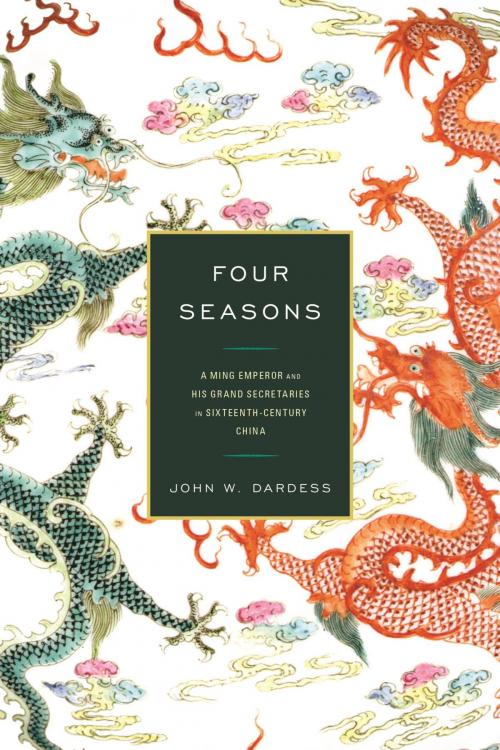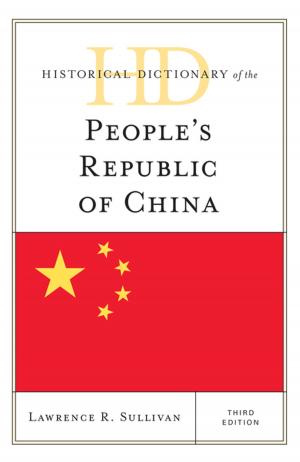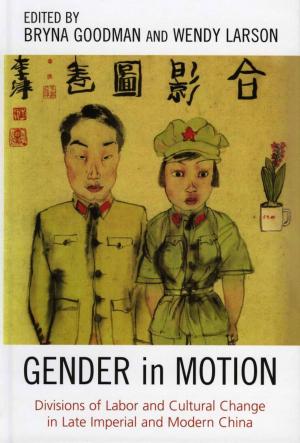Four Seasons
A Ming Emperor and His Grand Secretaries in Sixteenth-Century China
Nonfiction, History, Asian, China, Modern| Author: | John W. Dardess | ISBN: | 9781442265608 |
| Publisher: | Rowman & Littlefield Publishers | Publication: | April 12, 2016 |
| Imprint: | Rowman & Littlefield Publishers | Language: | English |
| Author: | John W. Dardess |
| ISBN: | 9781442265608 |
| Publisher: | Rowman & Littlefield Publishers |
| Publication: | April 12, 2016 |
| Imprint: | Rowman & Littlefield Publishers |
| Language: | English |
This important contribution to imperial Chinese history illuminates the basic concerns of the Ming state. Eminent scholar John W. Dardess shows in fascinating detail how Emperor Jiajing and his grand secretaries managed affairs of state and how personal ambition and policy differences combined to animate imperial political life. At the top sat Jiajing, industrious, religious, knowledgeable, ritually pious, but short-tempered and cruel. His chief assistants during his forty-six-year reign were his four successive grand secretaries. First was Zhang Fujing, a hard-minded bureaucratic fighter and ideologue, life coach to Jiajing during his youth. Then came Xia Yan, a superb technocrat who was executed for his part in a major policy dispute. He was followed by Yan Song, a colossally corrupt machine politician who knew how to please his ruler. Finally was Xu Jie, a liberal-minded reformer who put a benign edge on the regime’s final years. Drawing on a treasure trove of the grand secretaries’ personal writings, his narrative brings to life the inner workings of imperial governance, providing detailed descriptions of the challenging problems and crises faced by the largest polity on the face of the earth. Richly researched and engagingly written, this book will be essential reading for scholars and students of Ming China.
This important contribution to imperial Chinese history illuminates the basic concerns of the Ming state. Eminent scholar John W. Dardess shows in fascinating detail how Emperor Jiajing and his grand secretaries managed affairs of state and how personal ambition and policy differences combined to animate imperial political life. At the top sat Jiajing, industrious, religious, knowledgeable, ritually pious, but short-tempered and cruel. His chief assistants during his forty-six-year reign were his four successive grand secretaries. First was Zhang Fujing, a hard-minded bureaucratic fighter and ideologue, life coach to Jiajing during his youth. Then came Xia Yan, a superb technocrat who was executed for his part in a major policy dispute. He was followed by Yan Song, a colossally corrupt machine politician who knew how to please his ruler. Finally was Xu Jie, a liberal-minded reformer who put a benign edge on the regime’s final years. Drawing on a treasure trove of the grand secretaries’ personal writings, his narrative brings to life the inner workings of imperial governance, providing detailed descriptions of the challenging problems and crises faced by the largest polity on the face of the earth. Richly researched and engagingly written, this book will be essential reading for scholars and students of Ming China.















